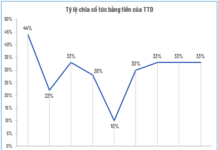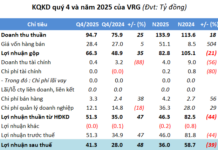A recent incident involving a delivery driver and a female customer, T.T., has sparked a heated online debate and brought to light the potential pitfalls of the gig economy. T.T. had placed an order for 30 cups of dessert and requested that the driver, V.D., write individual names on each cup for her colleagues. However, things took an ugly turn when V.D. expressed his displeasure, leading to a verbal altercation.
The situation escalated when the delivery driver shared the customer’s personal information, including her phone number and workplace address, on a Facebook group for drivers. This resulted in a wave of online harassment directed at T.T. and her office supplies company. The company’s fan page was bombarded with negative comments, and multiple branches received one-star reviews on Google. Meanwhile, T.T. was forced to lock her social media accounts to protect herself from threats and criticism.
In response to the incident, T.T.’s company temporarily suspended her from work to investigate the matter and acted as a mediator between the two parties. The delivery company also terminated their partnership with the driver, citing a breach of their code of conduct, particularly regarding customer privacy.
Brands are Delivered with Every Order
Most delivery platforms, such as Grab, Shopee Food, and Ahamove, operate on a “delivery partner” model, where drivers are not official employees and are not bound by traditional labor laws. While this model reduces operational costs and allows for flexible expansion, it also means that platforms have limited control over the behavior of their drivers, especially since interactions mostly occur over the phone or private chat platforms, leaving no record for review.
Meanwhile, it is important to recognize that delivery drivers are the direct representatives of the brands they deliver for. They are the face of the company to the customers.

Disclosure of customer information by delivery drivers is a serious breach of privacy and can lead to legal consequences if customers choose to take legal action.
In this case, the platform’s decision to lock the driver’s account was in line with company policies, despite criticism that it negatively impacted a “less powerful” individual. In the digital economy, the customer experience is heavily influenced by the delivery driver. If a driver behaves disrespectfully or shares misleading information, the brand they represent takes a direct hit.
However, not all delivery companies invest sufficiently in customer service training and internal communication about the role of delivery drivers in their value chain. This incident is a prime example of how a driver’s impulsive action can trigger a media crisis affecting both customers and unrelated businesses.
The Gig Economy Model: Time for a Rethink?
Logistics experts argue that Vietnam needs to develop a “labor law for the platform economy,” holding platforms accountable and preventing them from evading responsibility by classifying workers as “freelancers.” If a delivery driver causes harm or breaks the law, should the platform be held liable? Clear legal frameworks and robust internal control systems are essential for maintaining the credibility and long-term sustainability of these companies.
The “30 cups of dessert” incident is more than just an online argument; it highlights the shortcomings of the gig economy model and the need for effective crisis communication strategies. Currently, there is no official data on the number of delivery drivers in Vietnam, as they are typically classified as “partners” rather than employees, working for multiple platforms with varying levels of activity. Nonetheless, they represent a significant portion of the digital economy’s workforce.
Specifically, the online food delivery market in Vietnam is projected to reach a value of $1.8 billion by 2024, growing at a rate of 26% from $1.4 billion in 2023—the fastest growth rate in Southeast Asia. In this platform economy, where delivery drivers are the “brand interface,” every action, word, and request, no matter how small, can snowball into a media frenzy if not properly managed.
Proposed Regional Minimum Wage Increase for 2026
The Ministry of Home Affairs is seeking feedback on a draft decree that proposes to set a minimum wage for employees working under labor contracts.
The Ultimate Guide to Unemployment Benefits: 13 Scenarios Where Your Payments May Be Affected
As of January 1st, 2026, the new Employment Law of 2025 will come into effect, bringing about significant changes. One of the key aspects of this new legislation is the introduction of stringent conditions that could result in the discontinuation of unemployment benefits for many recipients. These provisions are designed to ensure a more efficient and targeted allocation of resources to those in need.
“Premier Recruitment Services: Sourcing Top Talent for Your Business”
“The employment services sector specializes in supplying and recruiting technical professionals, skilled managers, and executives. We cater to a diverse range of clients, from large corporations and enterprises to foreign-invested companies, ensuring they find the right talent to thrive and succeed.”



















